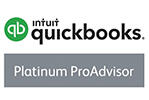Group capital allowances under review
If your company is part of a group, or is connected to other companies, you may receive a letter asking you to check if you have overclaimed capital allowances. Why might this have happened and should you be worried?

The annual investment allowance ( AIA) gives 100% tax relief on qualifying expenditure up to a specific limit (currently £1m), most commonly for plant and machinery. Group companies and those under common control all have to share a single AIA, to prevent abuse of the relief. Additionally, if there is a short or long accounting period, the AIA is apportioned accordingly. These considerations may be overlooked, meaning excess claims can occur, e.g. where two group companies both claim £1m.
If you receive a letter, it does not automatically mean that you have overclaimed. Such large scale campaigns are based on mass data mining, which is far from perfect but gives HMRC a reasonable base with which to identify potential errors. You should firstly check that the correct amount of AIA has been claimed for the accounting period(s) specified in the letter. If you discover a mistake, it should be corrected within 30 days of the date of the letter. However, if the AIA has been claimed correctly, it is still necessary to confirm this to HMRC using the contact details provided in the letter, otherwise an enquiry may be opened.
Related Topics
-
CT61
-
Repayment thresholds for student finance confirmed
Repaying student finance can seem complicated, with a number of different plan types each having different repayment thresholds. The thresholds for the forthcoming year have just been confirmed. What’s the full story?
-
Advance assurance pilot confirmed
There have been a number of changes to how research and development tax credits are claimed in recent years. HMRC has now confirmed that a pilot of a new clearance procedure will begin later this year. What do we know so far?



 This website uses both its own and third-party cookies to analyze our services and navigation on our website in order to improve its contents (analytical purposes: measure visits and sources of web traffic). The legal basis is the consent of the user, except in the case of basic cookies, which are essential to navigate this website.
This website uses both its own and third-party cookies to analyze our services and navigation on our website in order to improve its contents (analytical purposes: measure visits and sources of web traffic). The legal basis is the consent of the user, except in the case of basic cookies, which are essential to navigate this website.